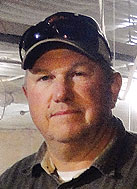
While the green movement has focused more attention on environmental-friendly farming issues, farmers have always been environmentalists because their livelihood depends upon environmental sustainability that provides healthy land and healthy production.
An example is Marley Family Farms, which organized into a limited partnership five years ago in Elkins, Ark. The farm has 10 broiler houses and 2,100 acres of land with an additional 600 leased acres.
Jeff Marley planned out and built new chicken houses, taking the nearby White River headwaters, which provides water for 425,000 people, into consideration. Then an Extension agent called and invited Jeff and Marsha Marley to become a Discovery Farm or station for continual and automated measurements of how effectively Jeff’s management plan worked in real life.
“After investigating the opportunity, I found two important benefits,” Jeff explained. “First I would have scientific data to support my best management practice guesses and second, I could become an important ambassador for the chicken industry which is plagued by public misconceptions.”
While data is still being analyzed, initial results show grass absorbs far more moisture from the chicken houses than predicted and dust levels from the houses’ litter are lower than expected.
Bus tours frequent the farm and many poultry industry detractors leave amazed by the level of comfort and care chickens received during their eight-week stay.
Most of the time the problem is a lack of understanding that healthy, happy chickens promote profit and sustainability, Jeff said.
Jeff said he hadn’t planned to go into farming in his younger years, but fate brought him back to his roots.
“I went to college to get out of farming but ended up right back in it because when I graduated in 1979, the job market was poor and farming was the smartest thing to do,” Jeff said with a laugh.
Jeff began by building two chicken houses under a government program initiated by the Carter Administration for beginning farmers. Years later, Tyson offered an upgrade program that Jeff initially declined because profit margins were too small. Adjustments were made to the program and Jeff built his new houses.
Each house holds 24,000 birds for 51 days and produces 7.25-pound chickens, which are designed for white breast steak cuts. Since chicken feet have become a desirable commodity in the Asian market, perfect feet or paws without blisters are also necessary and are highly profitable for Tyson.
Jeff identifies litter as his biggest challenge. Because he has a large operation with both chickens and cattle, keeping labor costs and record keeping to a minimum are high priorities. Consequently, he sells his litter and uses naturally occurring manure from the cattle, along with commercial fertilizer, on his own fields. The chicken litter is then resold by the buyers to areas with greater soil nutritional needs in Missouri and Kansas.
The most difficult issue for the chicken operation is removal of dead chickens. Jeff researched the Internet for a solution and settled on a little-known system that is comprised of a 10-inch trough and an 8-inch belt running down the middle of each house that is powered by a motor strong enough to handle the heavy chickens. The custom system’s control box was originally inside the houses but proved susceptible to high humidity. When Jeff moved the boxes to the control rooms, the issue disappeared and Jeff’s employees handle removal easily and efficiently.
Jeff said, “Now my mom could help me.”
The Marley cattle operation consists of 300 commercial cows with a predominant mixture of Gelbvieh and Balancers so calves benefit from good maternal traits. Jeff keeps replacement heifers and has 12 bulls to produce winter and summer calving seasons. Calves are sold at 450 to 650 pounds at the Joplin Regional Stockyards in Missouri after having been tagged, castrated, wormed, implanted and administered two rounds of shots. Jeff prefers injectable wormer even though it is slower, but generally uses pour-on wormer because it is safer and faster.
Pastures are a mixture of warm Bermuda and clover for summer grazing, and fescue and clover for fall with drilled wheat augmenting winter forage. The first cutting of hay fields is predominantly annual ryegrass. Because Jeff’s land has a naturally elevated phosphorus level, he fertilizes with nitrogen and uses chicken litter only every three or four years. Needs are determined by annual soil testing.
The size and complexity of the Marley operation requires efficiency in order to make a profit.
Jeff’s attitude toward farming and the chicken business are simple, “Happy chickens are profitable chickens. The houses are full of brothers and sisters with perfect food, perfect water and perfect temperature for eight weeks. Farmers are humane and environmentally conscious as a natural extension of the business they are in,” he said.







